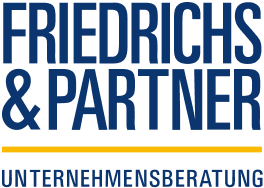When the formula works, the products that successfully capture the imagination of diverse consumers the world over seem to sell themselves, but it takes sophisticated global teams coordinating the most minute details behind the scenes to pull it off. In the post-globalized world, examples of companies that got it right abound, from Coca-Cola, to Heinz and McCormick.
Michael Okoroafor has worked with all three of these global giants applying his technical skills over the past few decades as an innovative leader focused on developing novel form factors in packaging. Building global teams to deploy innovative products and solutions effectively across dozens of international markets has become his trademark skill, and the packaging that protects and showcases those products is his canvas.
Global Growth
“Our biggest growth today at McCormick is outside the US, in emerging markets like Russia,” Okoroafor said, noting the company’s global success isn’t measured by the recognition of the parent group, but rather, its local brands. “When you go to Australia, most people don’t know McCormick. What do they know? Aeroplane, it’s the biggest brand in our segment in Australia. When you go to France, most people probably don’t know McCormick, but they do know Ducros. Ducros is number one in France. Also Vahiné is the number one [brand] in its segment in France and that is what I consider global companies, those companies that lead in the different markets, not necessarily from where they started originally,” Okoroafor said.

After developing novel plastic compounds at Bausch & Lomb to insulate sound in submarines early in his career and then developing scratch-resistant, break-proof lenses at PPG Industries for the likes of Ray-Ban, Okoroafor had some 30 patents under his belt when Coca-Cola recruited him. He said he was thrilled to work with Coke, one of the biggest brands of all time, its classic bottle the most widely recognizable packaging in the world. “The reason they hired me was thought leadership and innovation,” he recalled.
Packaging is the first medium consumers engage with in the supermarket aisle, Okoroafor pointed out, and it’s what actually sells products, more so than TV ads and billboards. “If you’re like me, you don’t buy a perfume unless you like the bottle,” he said.
Intercultural Advantage
Okoroafor’s technical expertise was gained with a bachelor’s degree in chemistry from the University of Nigeria and then as he earned a PhD in polymer chemistry from Michigan State University. He’s the first to acknowledge that technical training catapulted his career, but Okoroafor said his unique cultural perspective gained from living and working in several different countries throughout his career, is every bit as critical to the job he performs today.
“If you want to win in the millennial market, or the Hispanic Market, or the African market and you go down there with a culture that antagonizes them, as millennials, as Africans, as Hispanics, you’re not going to win,” said Okoroafor. “It’s called results, it’s very simple, that’s numbers, that’s dollars, and if you want profitable results, you want to make sure that you address those markets, or those segments, with people that understand it, that it’s their second nature, they know what they are doing. That’s how you win and that’s why diversity is critical to any company’s growth.”
Intercultural competence is as important a consideration as technical skills when he selects candidates for the global team he leads in his current post as global innovation leader at McCormick, Okoroafor said. “The first mistake companies make is that [they think] it’s just the technical knowledge. You can teach them the technical things,” but the winning formula, he said, is “a fusion of technical expertise and culture.”
Intercultural excellence expert and Linking People founder Christa Uehlinger advises top executives at some of the world’s biggest companies on the role culture can play in driving business success, far beyond the pressure corporations may feel from consumers and stakeholders to be politically correct by diversifying their rank and file.
“The moment you work in an intercultural environment you are challenged by a cultural overlap in which your approach of doing things doesn’t necessarily work anymore, so you’re forced to look for new solutions,” Uehlinger said.

New solutions are the focus of Okoroafor’s work as global innovation leader at McCormick. Soon after assembling the company’s first global innovation team in the first half of 2015, Okoroafor brought together his colleagues from Australia, Africa and the EU at the company’s headquarters in Hunt Valley, Maryland to develop a roadmap.
“We had to create a cohesive global strategy that would address the company’s need for growth and efficiency. If you want to improve things, you can learn from the emerging markets because they don’t have a lot. We have to inject that mindset in the developed world,” he said.
Inquisitiveness is one of the key competencies experts like Uehlinger point to for effective global leadership, and it’s a trait Okoroafor has demonstrated consistently throughout his career.
In the second half of 2015, Okoroafor and his team developed a merchandizing strategy that takes into consideration the fact that consumers of the millennial generation shop online before going to the store, he said. The team also created new packaging systems to grind McCormick’s line of culinary herb products and take full advantage of their aroma and flavor, targeting professional chefs and general consumers alike. The ideas behind such innovations were developed in collaboration with team members from across the globe, he said, noting the old top-down approach is no longer a relevant or effective leadership style. “One of the first steps is to listen,” he said recalling their first week together. “After I introduced myself I got out of the way.”
A business leader’s propensity and ability to learn, on an ongoing basis, is one of the key determinants of success, according to Uehlinger. “Great leaders have the ability of being open, of creativity, of listening carefully, of observing details, of being present,” she noted.
Luis Alvarez, CEO at Lancer Corporation, one of the world’s leading manufacturers of beverage dispensers, also cites listening skills, along with inquisitiveness and cultural empathy, as key competencies for effective leaders in today’s international business environment.
“Business now is global, and so as companies diversify, like ours -- we sell more outside the US than we do in the US -- we have to understand the global markets before we can succeed in them,” Alvarez noted.
Affinity vs. Tolerance
Understanding cultural differences, learning from them and sincerely appreciating diverse mindsets is at the heart of Lancer’s international expansion, Alvarez said.
“If an executive doesn’t care about the culture, or is somewhat in a mode of thinking they’re superior to the culture they’re going into, the employees and the partners and the peers see right through that. When they sense that, then there’s that inherent arrogance, if you will, from an executive that doesn’t enjoy my culture, so therefore the communication and other business aspects start to suffer.”
Following his appointment as CEO, Lancer tailored its product line to fit the needs of its international target markets simply by making its soft drink dispensers more compact. It wasn’t rocket science; equipment in Asia and Latin America needs to be smaller to fit in the smaller stores found it those regions, he said, but it took a new way of approaching these markets for Lancer to adjust its product line to conform to that reality.
“It becomes very important for a company to understand and properly develop the right marketing and sales plans for those countries,” he noted. International sales have been on the rise since the company recognized the mismatch between its products and where it hoped to place them, and bridged the cultural divide, Alvarez said.

The Learning Quotient
The Lancer CEO said business leaders must make learning a routine practice throughout an organization, noting there’s no place for complacency in a modern, competitive workforce. Intercultural competence, he said, is one area where employees at all levels must strive to improve themselves on an ongoing basis.
“In every culture, everybody wants to be in a comfort zone. Why? The fear of change, the fear of what’s happening in the future, etc., but I think in today’s day in age, that kind of employee doesn’t really fit in any company that has to be forward looking, that has to be growing, that has to be challenging itself continuously.”
Okoroafor is convinced an individual’s learning quotient determines success at all levels of an organization, from the bottom rung to senior management. Okoroafor takes every opportunity to listen and learn, he said, and no one is too young to be a teacher.
“Our millennial market, it’s the next growth opportunity, they don’t have the experience, [but] guess what, I’m getting reverse mentoring from the millennials because they are more tech savvy, they communicate [in a] different way,” he noted.
A Brave Flat World
Okoroafor is right to look to the millennial generation for his continuing education and as a prime target for his marketing campaigns. Polls indicate those born after 2000 are more socially progressive and accepting of cultural differences than any generation before them, and technology is leveling the playing field.
“The world is becoming what I consider flat, and to really do well you have to be sensitive to the cultural differences and more importantly to the benefits of leveraging those cultural differences in two areas: one in delivering on the key thing that matters in business, which is results; and two, in growing a healthy company for the long run,” Okoroafor said.
It’s not about being politically correct; intercultural competence and the borrowing of ideas and of our diverse origins have become hip, part and parcel to pop culture. The tendency in politics is to avoid saying the wrong thing at all costs, and the easiest way to do that is to pretend we’re all the same, pander to the masses without saying much at all. The best in business know this kind of rhetoric won’t move products, and instead top leaders embrace cultural pluralism as the basis for building effective teams and implementing marketing strategies that deliver results.
Successful global companies understand the same message won’t sell the same product on two different sides of the planet, and the international market is a diverse patchwork of moving targets. Broadcasting an all-encompassing watered down message doesn’t build customer loyalty; the approach must be sensitive and keep pace with diverse, evolving markets. It requires a real appreciation of cultural differences and long-term commitment, not a cursory bid for the consumer’s dollar. In the words of intercultural advisor Christa Uehlinger, “It’s actually a lifelong learning process.”


